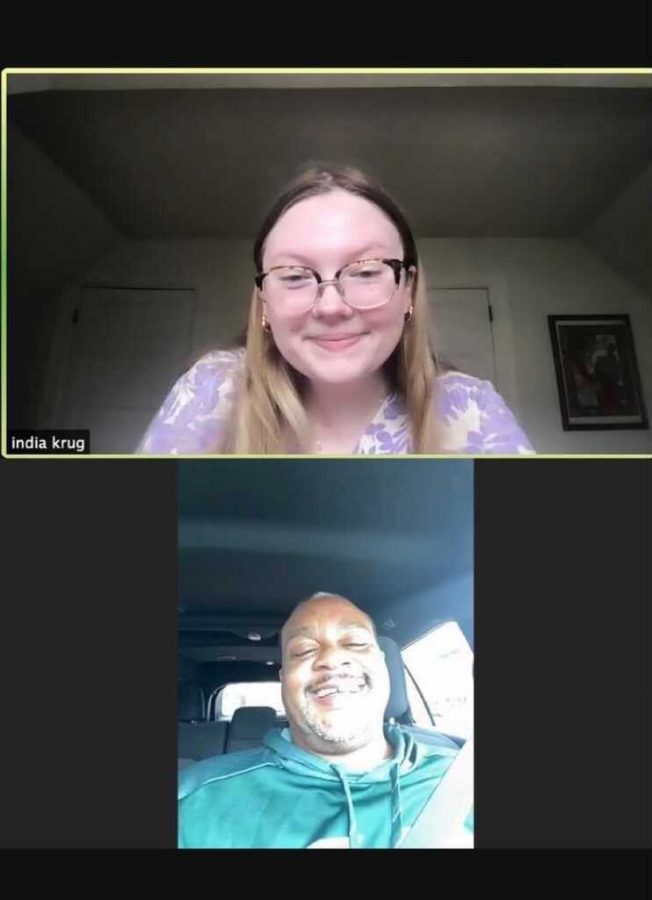Opinion | Mayoral primary marks win for Pittsburgh youth, progressives
June 2, 2021
As I anxiously scrolled through precinct results on Twitter, my phone suddenly lit up with a text — Mayor Bill Peduto had conceded.
After a contentious campaign season, where the two-term mayor far outspent his rivals, the results of Pittsburgh’s May 18 Democratic primary surprised many. Nearly 56,000 Pittsburghers cast ballots and five-term state Rep. Ed Gainey received around 46% of the vote, securing the Democratic nomination. He is poised to become Pittsburgh’s first Black mayor in January 2022.
This win not only indicates a transition of power, but a transition of outlook on how to best deal with the City’s most urgent problems. Peduto’s campaign relied heavily on his past accomplishments over his eight years as mayor. Gainey’s, on the other hand, served as an example of what could be. It is not often that voters stray from an incumbent and take a chance on someone else. In fact, Peduto is the first Pittsburgh mayor to lose a bid to stay in office since 1933.
Gainey has been an outspoken advocate for improving housing, healthcare, public works and environmental conservation. But most of all, he has called for police reform. As mayor, he will aim to demilitarize police equipment and training, change the rules of engagement and redirect police resources to other community services. He also plans on establishing alternative response procedures for nonviolent and mental health emergencies.
He said he believes his message on police-community relations was what resonated with Pittsburghers the most.
“I want everybody to go home safe,” he said when I spoke with him on Tuesday.
A simple truth, but not an easy goal. Like many cities in summer 2020, Pittsburgh saw a surge of Black Lives Matter protests that called for structural changes in police accountability, community safety and public spending. Gainey said it was powerful to see people of all backgrounds coming together to talk about these issues, and considers it a turning point in the City.
“I had been in the City my whole life and I had never seen that. To see them all holding up signs that said LGBTQIA+ justice, Black Lives Matter, environmental justice, criminal justice … the common word being justice. Marching in the street in the name of justice,” he said. “It was so powerful of a narrative … that we want a City for all.”
Gainey’s praise of last summer’s rallies and his commitment to take legislative action made him a clear choice for many local activists and organizers. Progressive young people who may have felt scorned by Peduto found a mentor in Gainey, who made supporting young leaders one of his campaign priorities. He said he intentionally sought out young people for his team because of what he had seen over the summer.
Will Allison, a rising sophomore political science major, is one of those young people. He joined Gainey’s campaign as a fellow last semester because he believed Gainey could transform Pittsburgh.
“It was a really enthusiastic campaign with lots of young people. Knocking on doors was a big focus because we knew we couldn’t beat Peduto on the money, so we had to out-organize him. And we really went everywhere — I genuinely think I canvassed in every neighborhood,” Allison said.
This primary not only displayed the power of progressive grassroots organizing, but a shedding of old guard Democrats and the Democratic machine. This is a process that has been unfolding in the Pittsburgh area for years. We have seen it on state level with representatives like Summer Lee and Sara Innamorato, and on the county and City level with councilors like Deb Gross and Bethany Hallam — all of whom were strong supporters of Gainey’s campaign.
Gainey has referred to his campaign as a “CommUnity” over the past six months. This win was the product of a growing impatience for change, blending public dialogue and politics and building coalitions. It was about tackling issues that could not afford to be overlooked for another four years, such as police brutality, racial disparities in arrests, rapid gentrification and Black maternal mortality rates. Now, Gainey says, comes the hard part.
“The work is not done. The work can’t be done. What we’ve got to do is build the foundation so whoever takes it after me has a better foundation to build from,” he said. “A win is a race, a victory is the ability to change culture.”
Gainey is an underdog who many Pittsburghers see themselves in — queer Pittsburghers, Black Pittsburghers and Pittsburghers of color, union workers and impoverished families. This election was a reminder that people-driven politics can prevail even against seemingly unbeatable odds. That we can do better and find better for our communities. That we deserve more than roundtable discussions, we deserve a seat at the table.
“Everyone has to have access and opportunity if we’re going to have a City for all,” Gainey said as he looked ahead to his first months in office. “We have great City services, and we want to make sure we have resources going to the areas that need them. Everybody has to feel the love of their neighborhood. We don’t want to leave any neighborhood behind.”
India writes primarily about politics for The Pitt News. Write to her at [email protected] or follow her on Twitter @indialarson_.









